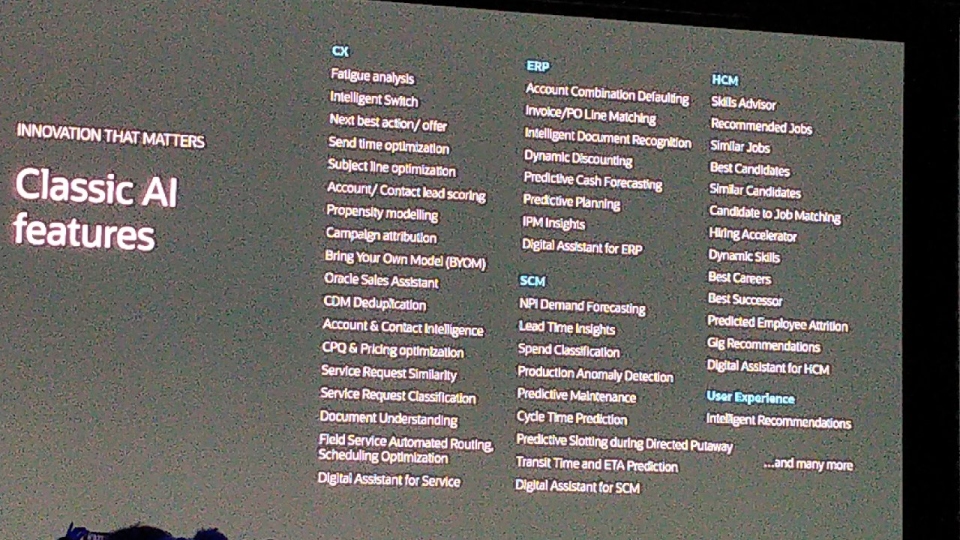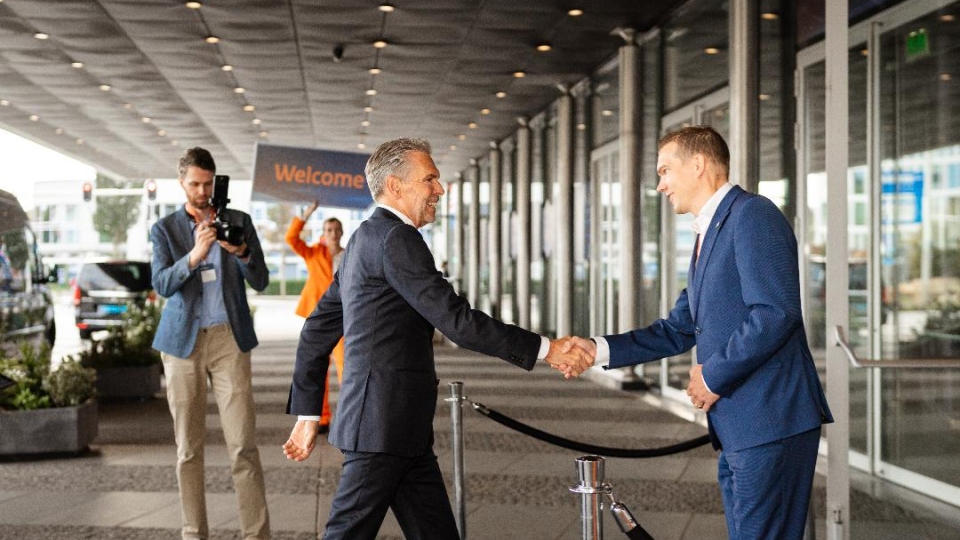
Oracle Fusion Applications (OFA) are apps built on the Oracle Cloud and largely supported by channel partners. Indeed, at this week’s Oracle CloudWorld event in London, attendees heard that 80% of Fusion app projects were delivered by partners.
Oracle is now embedding AI into these apps, and partners and customers are expected to go on a learning curve to make sure they get the best out of them.
Nick Griffin, crown representative at the UK Cabinet Office, told the conference: “Oracle has 3,500 touchpoints across the UK government. We have a huge technical debt to use and manage, and anything Oracle can do to help is important.
“With AI, security of data is front and centre, and I’m sure we can find a way through the security issues. To benefit from AI, the accuracy of the data is key to make sure services can be accessed more widely and in a better way.”
He added: “A few years ago it was all about Oracle products, now it’s about Oracle products and services, and we have the choice to use them [and their partners] to improve delivery.”
Andrew Wells, director for financial control at NatWest Group, had some tips when it comes to successfully delivering cloud and AI projects. “We have a multi-year relationship with Oracle Fusion, and we had the choice of either ‘big bang’ adoption or agile modular-based adoption.”
A big bang approach was initially tried, Wells said, but the modular alternative was then adopted instead. “We made mistakes on the journey, and AI then wasn’t part of the journey, we’ve learned a lot,” said Wells. “We did try and do things on our own, but it was taking longer and costing more.”
The banking group now uses partners to support its Fusion journey. At the event, Oracle pushed its Oracle Customer Success Services (Oracle CSS) effort, which involves the vendor working in partnership with system integrators, managed service providers and other partners to better support customers.
Wells said: “CSS allows us to make sure we sweat our assets more. We have a lot of legacy products, and we have to make the most of them as we move to the newer products and services.”
This means the firm’s own IT teams are not exactly under-worked. “You have to avoid the fatigue, making sure the teams are looked after,” Wells said. “At the same time, you have to ensure there is process ownership among the teams too [to build continuity]. AI in a heavily regulated industry is also now a main factor for us.”
Vodafone Group says it wants to eventually run all its applications in the cloud. Pedro Sardo, Vodafone Group IT operations/technology centres director, said: “The cloud alliance Oracle has with Microsoft will help us with ‘lift and shift’ applications and cloud native apps.”
Vodafone has a number of legacy apps it developed and that are currently on-premise, and which eventually will be shifted into the cloud. It also wants to develop and deploy newer apps in the cloud natively.
“Protect and ensure services through Oracle will make sure legacy apps are performing as they should,” said Sardo.
On AI, Sardo was asked what Vodafone would be using it for, a year from now. “We’ll use AI to track security trends and threats to protect our systems. And AI will be used to make sure apps are current and meet needs.”
At a press and analysts meeting with Rajan Krishnan, Oracle group vice president for product development, IT Europa asked whether there was any danger that AI was perhaps being over-hyped?
Krishnan said: “New technology can sometimes be ramped up quickly at the beginning, and then sometimes fall. The generative AI ramp up is similar, but it is different, there is more of a pull from company boards when it comes to AI. Yes, we are creating demand, but there is also the pull from AI as well.”
He said productivity improvements, employee benefits, and better customer experience were clear benefits from AI. He also noted the useful examples of AI already bundled into Oracle products (see picture above).
But perhaps the last word on AI should go to Christine Hall, managing director of NEP, a non-profit financials unit that serves the English NHS. “Look at robotics a few years ago, everyone bought a robot but no one knew what to do with it. With AI, you can’t say everyone at an NHS Trust [hospital] has to use it.
“But at NEP, we have embedded AI into our Fusion platform. You can ask questions and get an overall view of what can be done to make potential savings. Small gains can create big gains in the long-run.” That said, Hall added, “we have to get away from the AI hype”.







